Chinese New Year Traditions
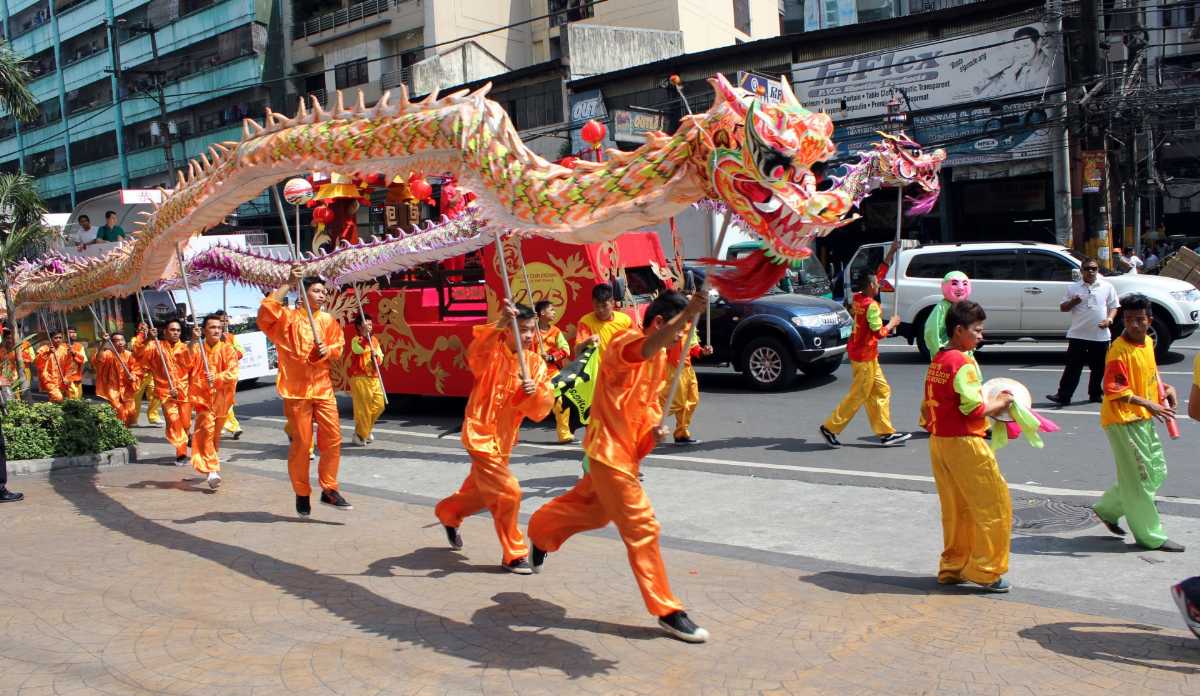
The Chinese New Year is coming, The atmosphere is arousing, with the sound of gongs, cymbals and drums played throughout the streets. The noise of fire cracker echoes everywhere. Looking around you all you will see is in red and gold colors…
Chinese New Year, also called Lunar New Year or the Chinese Spring Festival, holds the most significant position among all Chinese festivals and holidays. It lasts for the first fifteen days of the Chinese lunar calendar. Celebrations include, decorations parades, folk traditions and a wonderful feast. If you want to participate in the celebrations, there are many things you can do to join the festivities arid pay homage to the Chinese traditions.
5 Chinese New Year Traditions
Chinese New Year has been celebrated for 3,000 years and is one of the world’s largest festivals. The Lunar New Year is the most important festival of the Chinese Year, it is the celebration to welcome the start of a new year and a festival of family reunion. Chinese New Year begins with a New Moon. The Lunar Year is calculated from the time it takes the moon to travel around the earth; whilst the western calendar is based on the time it takes the earth to go around the sun. The orbits of the moon don’t relate to the time it takes the earth to go around the sun, which is why it is on a different date each year.
Chinese New Year in Chiang Mai celebrates at the Warorot Market promises to delight all ages.
Chinese New Year customs are numerous and they bring a colourful sense of renewal to this period of the year. Many of the rituals, like dragon dances, even the special foods eaten are imbued with a magical meaning.
- SEEING RED
The colour scheme is red. For clothes, pennants, and cards this beautiful shade of scarlet is everywhere.
The importance of red goes back millennia to a time when a monster of mythical proportions named Nian was menacing the countryside. He could only be repelled by loud noises and the colour of blood. Since then it’s become the luckiest of shades.
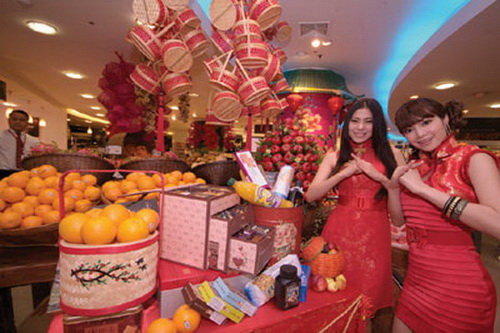
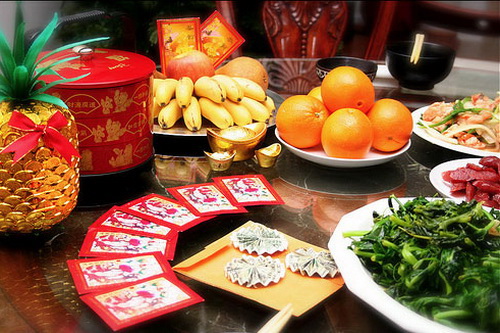
- RED FORTUNE ENVELOPE
During Chinese New Year, goody- packed red envelopes (called Ang Pow) are often distributed to family members. The red color of these packets symbolizes good luck; receiving the packets promises a long life of prosperity and good health.
- TIME OF RENEWAL
Chinese New Year is also a time of renewal and a springboard to make a fresh start. That’s why it’s also called the Spring Festival. And that spirit of change and growth is evident in customs like wearing new clothes to start the year off right. In Chinese culture one can never underestimate the importance of “face” and showing off your status with expensive clothes and jewellery, which has made Chinese travellers the world’s top consumers of luxury goods.
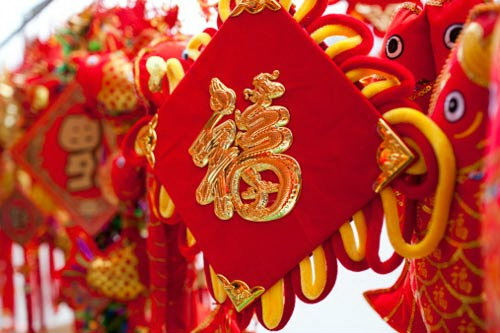
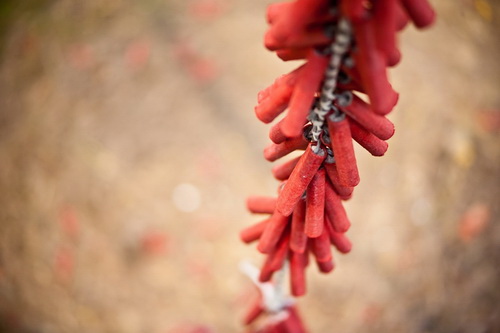
- FIREWORKS GALORE
Since the Chinese invented gunpowder, they have become maestros at choreographing the most bedazzling pyrotechnic shows. Chinese New Year sees a mind-blowing, retina-expanding experience. The fireworks and firecrackers are also said to scare off any evil spirits lurking around.
- DANCING WITH DRAGONS
This symbol of prosperity, of rain, wind and emperors, wends its way through the streets in serpentine fashion to the rhythm of pounding drums and crashing cymbals. The dragon is also believed to bring good luck to people, which is why they put money in his mouth. The longer the dragon, the more luck he leaves in his wake. In Thailand, the biggest dragon is in Nakhon Sawan, which also houses the longest Chinese New Year festivities.
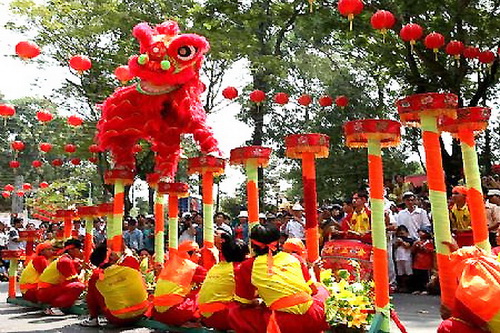
Top Lucky Food and Symbolism:
Certain dishes are eaten during the Chinese New Year for their symbolic meaning. The auspicious symbolism of these foods is based on their pronunciations or appearance.
– Chinese Dumplings: With a history of more than 1,800 years, dumplings are a classic Chinese food, and a traditional dish eaten on Chinese New Year’s Eve.
– Glutinous Rice Cakes: In Chinese, glutinous rice cakes sounds like it means “getting higher year-on- by year”. They are made with sticky rice, sugar, chestnuts, Chinese dates and lotus leaves.
– Sweet Rice Balls: The pronunciation and round shape of the sweet rice balls are associated with reunion and being together.
– Longevity Noodles: They are a symbol of wish for longevity. Their length and unsevered preparation are also symbolic of the eater’s life.
– Fish: In Chinese, “fish” sounds like “plenty”. Fish symbolises abundance and prosperity.
– Chicken: It has two meanings: one is career progress as the cockscomb resembles a Chinese mandarin’s hat; the other is punctuality and diligence as the cock wakes up and crows early in the morning.
– Pork: It symbolises prosperity, abundance and well-being.
– Duck: It signifies the ability to carry out many tasks.
– Good Fortune Fruits: Certain fruits are eaten during the Chinese New Year period, such as tangerines and oranges. They are selected as they are particularly round and “golden” in colour, symbolizing fullness and wealth, but more obviously for the lucky sound they bring when spoken. Apples symbolise peace and good health. Bananas grow in bunches, signifying a large family with many children.
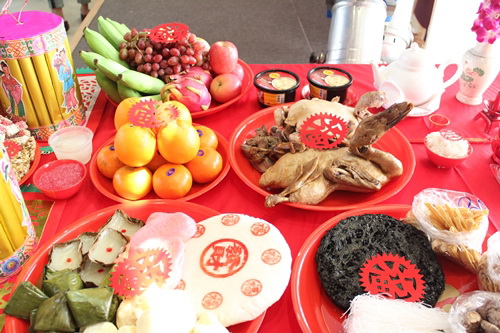
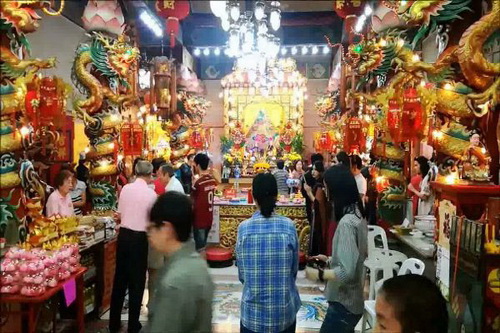
Taboos :
Chinese people believe that, as the Spring Festival is the start of a new year, what you will do then will affect your luck in the coming year.
ON NEW YEAR’S DAY :
– No eating porridge: it brings poverty.
– No hair washing : it washes away good luck.
– No needle work: it depletes wealth.
– No unlucky words: e.g. “death” brings death.
– No clothes washing: it washes away good luck.
– No sweeping: it sweeps away wealth.
SPRING FESTIVAL SEASON TABOOS :
– No crying : it brings bad luck
– No breaking dishes : it brings bad luck
– No using scissors: it cuts wealth.
– No lending or borrowing money: it leads to debt.
– No animal killing: it causes misfortune.
– No black or white clothes: they are unlucky colours.
– No odd amounts of lucky money: it’s unlucky.
– No hospital visits: it brings illness.
